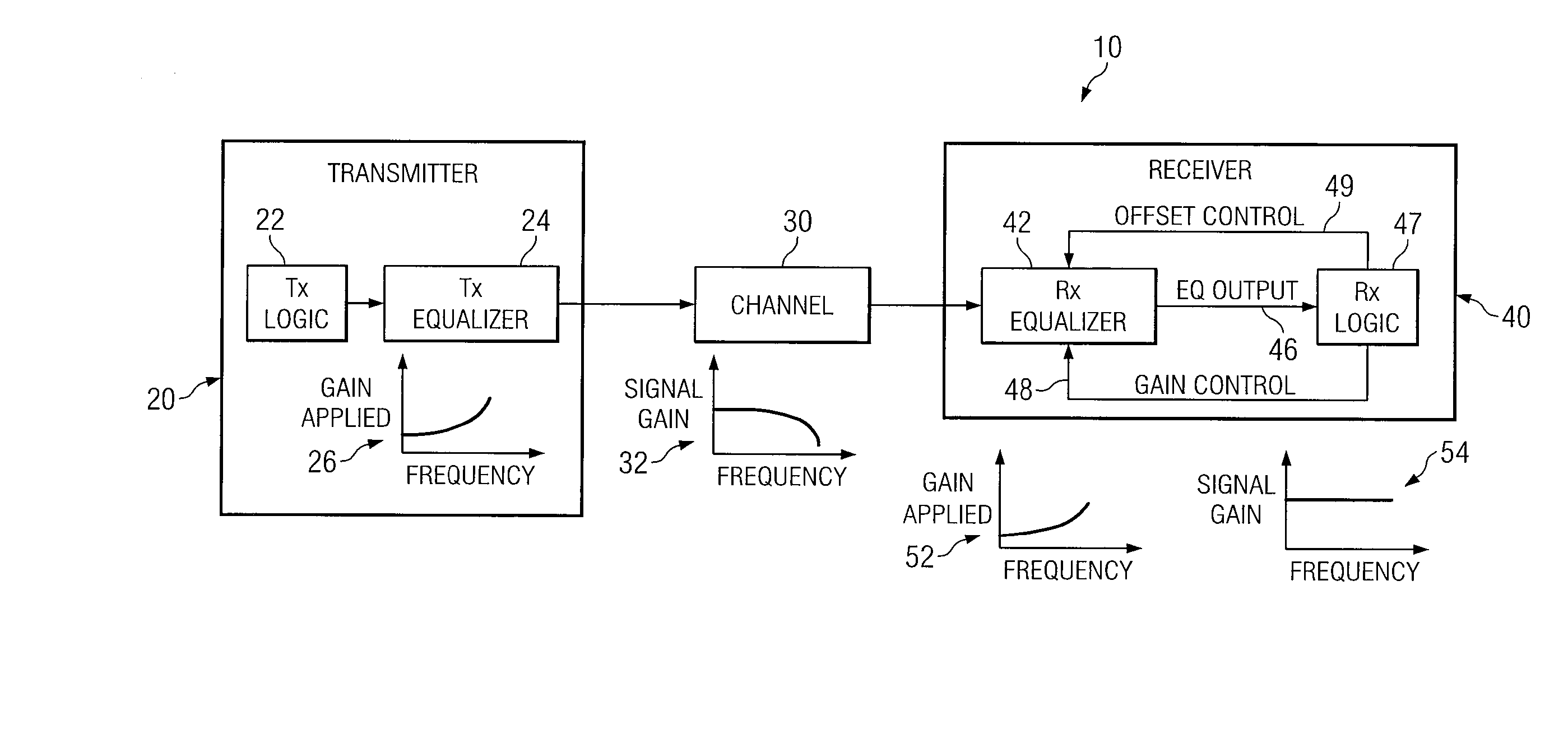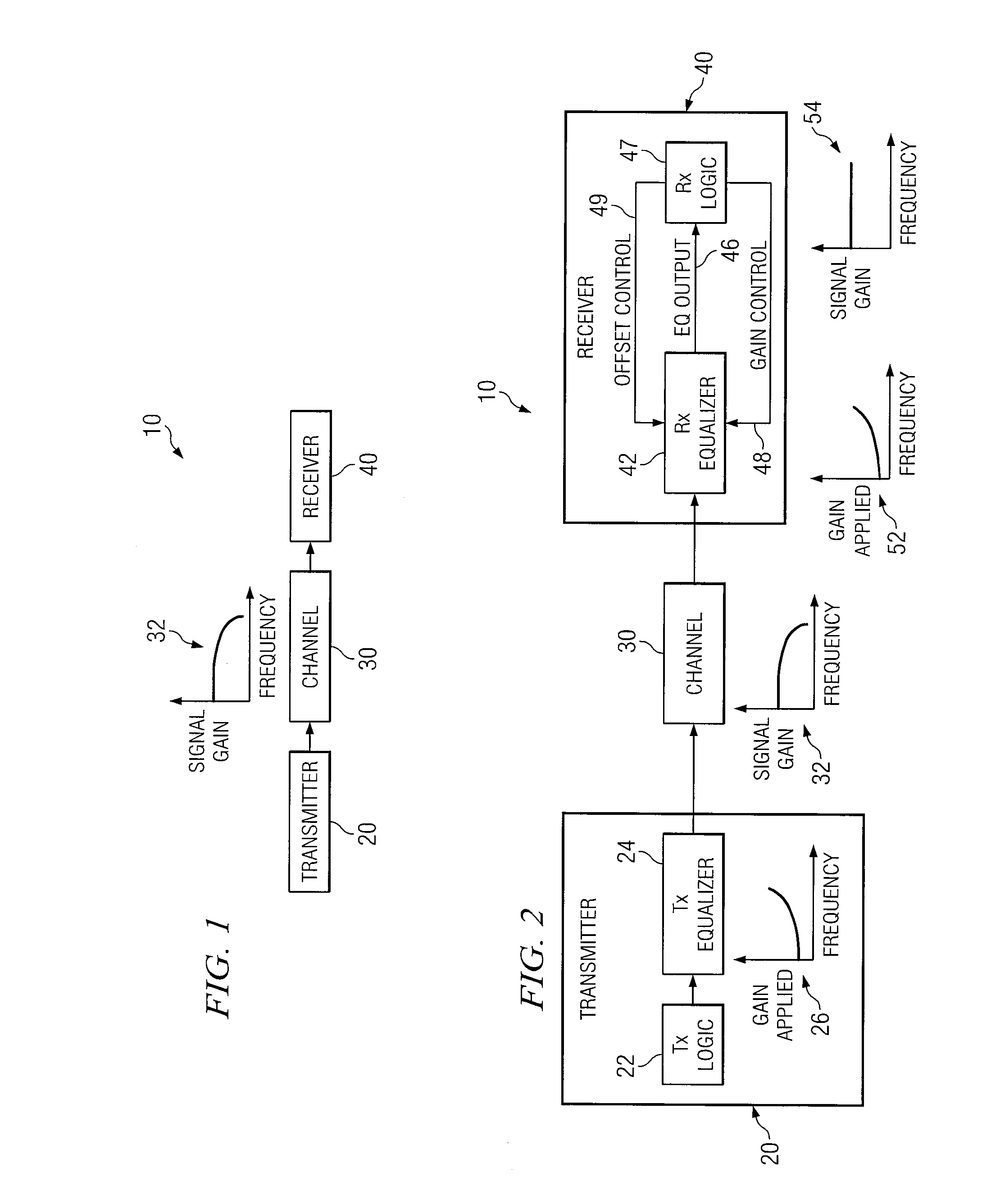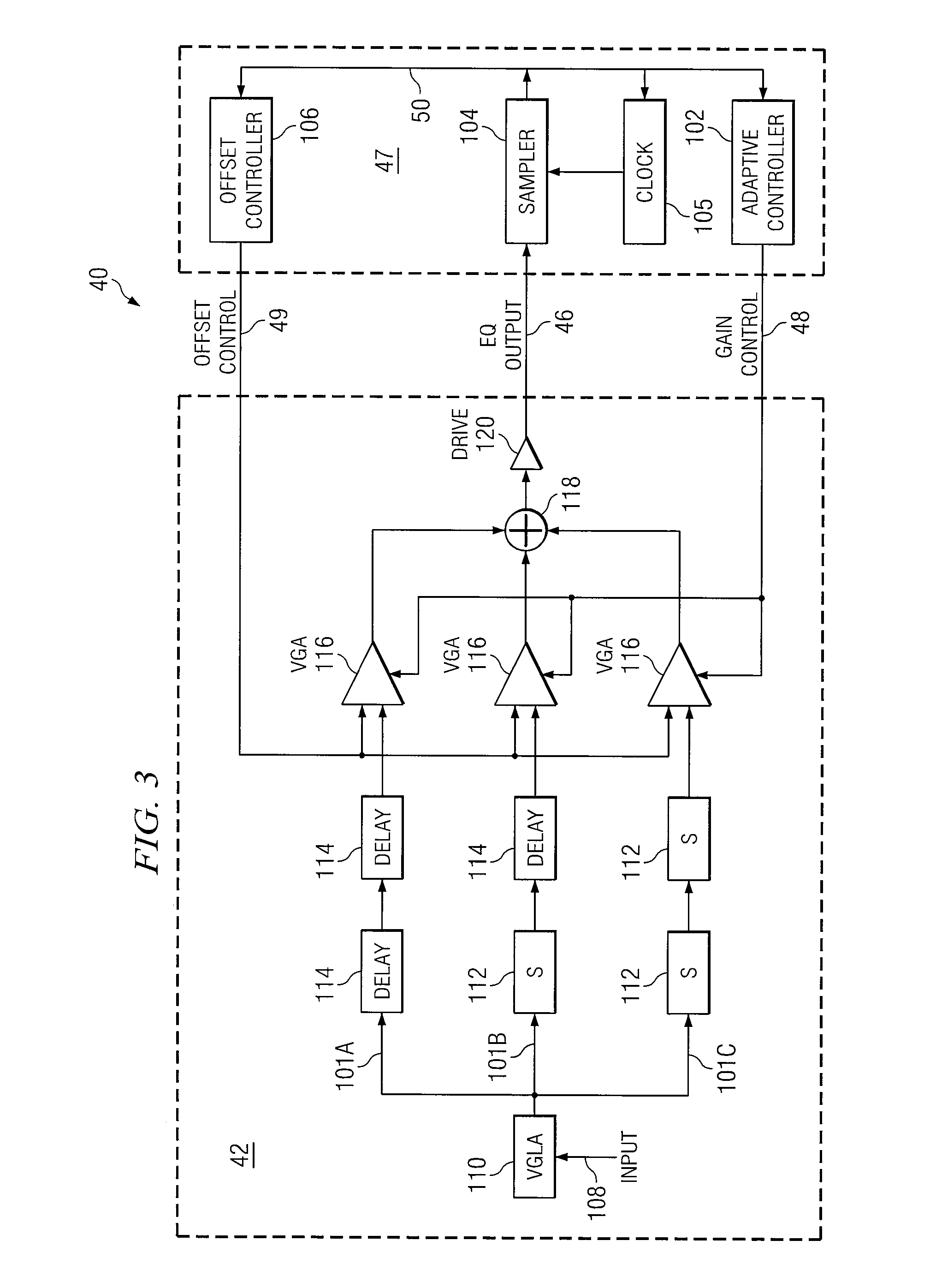System and Method for Independently Adjusting Multiple Compensations Applied to a Signal
a signal and compensation technology, applied in the field of signal communication, can solve problems such as attenuation of signals from phenomena, and achieve the effects of avoiding delay in convergence time, potential instability, and improving component sensitivity
- Summary
- Abstract
- Description
- Claims
- Application Information
AI Technical Summary
Benefits of technology
Problems solved by technology
Method used
Image
Examples
Embodiment Construction
[0072]FIG. 1 is a block diagram illustrating an example digital signal transmission system 10. Digital signal transmission system 10 comprises transmitter 20, communication channel 30, and receiver 40. Transmitter 20 may comprise any suitable transmitter operable to transmit signals carrying digital information to receiver 40 over channel 30. In particular embodiments, transmitter 20 may communicate information at relatively fast rates. Channel 30 may comprise any suitable channel or other communication medium. Channel 30 may include, for example, a cable carrying a signal, an insulator insulating the cable, packaging around the cable, and / or connectors. Channel 30 is operable to receive signals from transmitter 20 and forward these signals to receiver 40. Receiver 40 may comprise any suitable receiver operable to receive signals from transmitter 20 over channel 30 and process the digital information in the received signals suitably.
[0073] In typical digital signal transmission sys...
PUM
 Login to View More
Login to View More Abstract
Description
Claims
Application Information
 Login to View More
Login to View More - R&D
- Intellectual Property
- Life Sciences
- Materials
- Tech Scout
- Unparalleled Data Quality
- Higher Quality Content
- 60% Fewer Hallucinations
Browse by: Latest US Patents, China's latest patents, Technical Efficacy Thesaurus, Application Domain, Technology Topic, Popular Technical Reports.
© 2025 PatSnap. All rights reserved.Legal|Privacy policy|Modern Slavery Act Transparency Statement|Sitemap|About US| Contact US: help@patsnap.com



